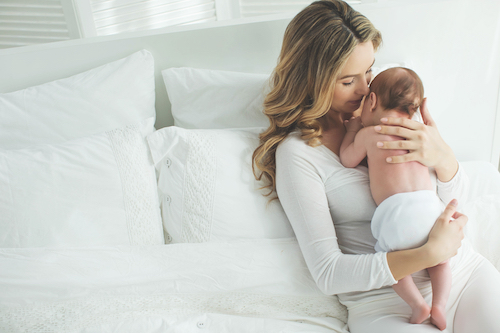
What Is Postnatal Depression?
Postnatal depression, which is often known as ‘postpartum depression’ or PPD for short, is the term which describes ongoing low mood after childbirth.
This period of a woman’s life is a time of significant hormonal fluctuation and change, and many women may experience what is sometimes referred to as the ‘baby blues’ around the third day after giving birth. This can manifest as weepiness, sadness and feelings of inadequacy and many new mothers may become suddenly overwhelmed by the task and responsibility ahead of them. Fortunately, the majority of women overcome this and the baby blues become a distant memory as they enjoy this new chapter of their life.
For some women, however, the feelings of fear, anxiety and inadequacy are never totally resolved, and the new mother finds it difficult to overcome these to fully embrace motherhood. This can then lead to guilt and depression, and the underlying hormonal changes and fluctuations may continue for a period of months or even years.
What Are The Signs of Postnatal Depression?
If you think that you or someone you know may be suffering from postnatal depression it is very important to seek proper medical advice and diagnosis. If you are unsure, then some of the key symptoms to look for include:
- Sleep deprivation
- Exhaustion
- Low energy
- Anxiety
- Feeling inadequate with taking care of the child
- Identity crisis
- Sadness
- Low self-esteem
- Decreased sex drive.
How is Postnatal Depression Treated?
Many women who feel that they are suffering from postnatal depression first go to their GP who will diagnose them, and subsequently many are put on antidepressant medication, which often doesn’t work. As postnatal depression occurs during times of hormonal change, the symptoms can often be treated by balancing the woman’s hormones with hormones tailored to their specific needs. By introducing bioidentical hormones, which are identical to the naturally occurring hormones in the body, this can successfully result in a positive mood, increased energy and vitality, and reduced anxiety, thereby treating the postnatal depression and allowing the woman to throw herself fully into the joys of motherhood.



